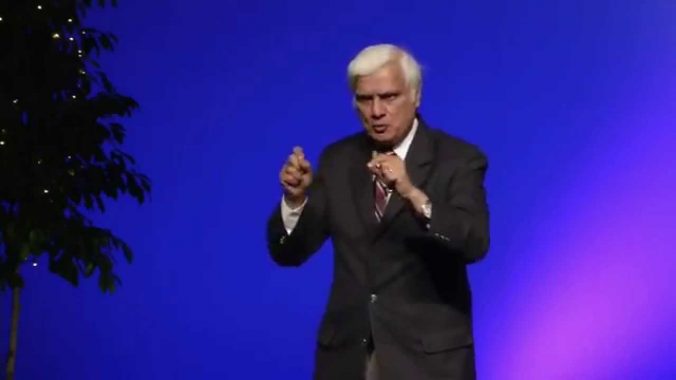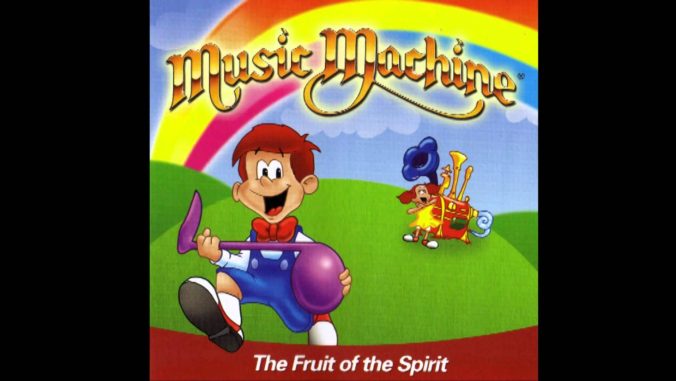 Mystified. That’s me. Over this . . .
Mystified. That’s me. Over this . . .
Is any one of you sick?
He should call the elders of the church to pray over him
and anoint him with oil in the name of the Lord.
And the prayer offered in faith will make the sick person well;
the Lord will raise him up. If he has sinned, he will be forgiven.
(James 5:14,15)
Before I explain my puzzlement, let’s consider this final block of James’ letter.
Is any one of you in trouble? He should pray. Is anyone happy? Let him sing songs of praise (5:13).
The Greek kakopatheo can be translated “suffer affliction, endure hardship, be in trouble.” These are the trials of various kinds” (1:2) those dispersed-among-the-nations Jewish Christians are facing Any one thus afflicted “should pray.” While that counsel seems obvious, too often prayer is our last resort instead of our default setting.
Likewise, if anyone is “happy” (Greek, euthumeo—encouraged and so cheerful) he should ‘sing songs of praise.” With both imperatives, James is calling these believers, whatever their situation, to turn their minds Godwarrd. Trouble should move them to God in prayer. Happiness should move them to God in praise.
Before we dig into my confusion, we’ll define some terms. “Sick” (Greek, asthanay) can also be translated “weak”. Besides physical sickness, it’s also used of spiritual weakness and the weakness suffered from being beat up (as in persecution) and bed-bound.
Commentators suggest a myriad of meanings for“anoint him with oil.” Since oil is a healing agent, perhaps James meant, “Rub it on like medicine.” Or, he may encourage its use as an aid to faith, especially when seen as symbolizing the Holy Spirit. Or, since oil is a sign of consecration, James may want it used to signify that the sick person is being set apart to the Lord (“anoint him with oil in the name of the Lord”) for the Lord’s authority to rule in this illness and his care be given. Since James without explanation instructs the elders (Greek, presbuteros—“shepherd” leaders of the church) to perform this act, we’re left to speculate on anointing’s exact significance.
What is “the prayer offered in faith”? Earlier, writing about prayer for wisdom, James hinted at the answer . . .
“But let him ask in faith, with no doubting,
for the one who doubts is like a wave of the sea
that is driven and tossed by the wind.
For that person must not suppose
that he will receive anything from the Lord;
he is a double-minded man, unstable in all his ways.”
(1:6-8)
The “prayer of faith”, then, probably refers to a prayer prayed with absolute confidence that the person praying will receive from the Lord.
The promise offers great encouragement to the sick.
And the prayer offered in faith will make the sick person well;
the Lord will raise him up. If he has sinned, he will be forgiven.
(5:15)
The sick will be “restored.” ” . . . the Lord will raise him up” (from his sick bed). And, “If he has sinned, he will be forgiven.” The source of every illness is not the direct result of sin (though sickness and death are in the world because sin is (” . . . sin entered the world through one man, and death through sin—Romans 5:11), sometimes it is (“That is why many among you are weak and sick, and a number of you have fallen asleep”—1 Corinthians 11:30). If that’s the case here, James promises, the sick sinner will be both healed and forgiven.
Therefore confess your sins to each other
and pray for each other so that you may be healed.
The prayer of a righteous man is powerful and effective.
Elijah was a man just like us.
He prayed earnestly that it would not rain,
and it did not rain on the land for three and a half years.
Again he prayed, and the heavens gave rain,
and the earth produced its crops.
(5:16-18).
Such sins should be confessed “to each other.” Then praying for each other will result in healing (Greek, iaomy—used of both physical and spiritual healing).
James offers the explanation and promise—“The prayer of a righteous man is powerful and effective”—to encourage his readers. The ESV translates: “The prayer of a righteous person has great power as it is working.” We might ask, then, who is a righteous person? Answer: one who has trusted his life to Christ (to be credited with his righteous) and is learning to practice righteous living.
Elijah, that great Jewish prophets, provides the classic model. He had “a nature just like ours” (ESV). He was “a man just like us” (NIV). Yet see the powerful effect of his earnest prayer! No rain for three and a half years. Then Elijah prayed again. Drought and famine ended as rain fell and crops grew. James means for us to be fortified in faith as we turn Godward on behalf of the sick.
My brothers, if one of you should wander from the truth
and someone should bring him back, remember this:
Whoever turns a sinner from the error of his way
will save him from death and cover over a multitude of sins.
(5:19,20)
These dispersed Jewish Christians, enduring trials and facing persecution, are vulnerable to “wander from the truth.” Why not, for instance, recant faith in Jesus and return to the safety of Judaism? So the church must watch out for each other. To turn “a sinner from the error of his way” is to “save him from death and cover over a multitude of sins” that would otherwise separate him from God This, too, (perhaps especially) is living a Godward life.
My Mystification.
Is any one of you sick?
He should call the elders of the church to pray over him
and anoint him with oil in the name of the Lord.
And the prayer offered in faith will make the sick person well;
the Lord will raise him up. If he has sinned, he will be forgiven.
(5:14,15).
I’m mystified, because James clearly means these words to encourage. Sick? Turn Godward! He’ll heal you.
Yet, after 44 years of pastoral ministry, I’ve almost never seen this “work”. As an elders team member I’ve prayed for more sick people than I can remember. I myself was prayed for many times. But I can’t remember one immediate (or soon thereafter) miraculous healing. Not that no one’s health returned; it just happened over time in due course.
James lays out few conditions. Church elders should be called. (Though James seems to envision the elders being called to the ill person’s sick bed, I don’t think prayer in a church building violates this.) We often used oil and prayed “in the name of the Lord.”
Faith? We could have prepared better in order to fortify our faith. But in the end, God gives faith. “
The apostle Paul taught . . .
” . . .to another faith by the same Spirit,
to another gifts of healing by that one Spirit.”
(1 Corinthians 12:9)
If ever we needed the spiritual gift of faith, it was then. Also, the writer to the Hebrews taught,
“God also testified to [his salvation]
by signs, wonders and various miracles,
and gifts of the Holy Spirit
distributed according to his will.”
(Hebrew 2:4)
Couple that with 1 John 5:14,15 and we can comfortably conclude that God gives his gifts and answers our prayers according to his will . . .
“This is the confidence we have in approaching God:
that if we ask anything according to his will, he hears us.
And if we know that he hears us– whatever we ask–
we know that we have what we asked of him.”
James himself recognizes the Lord’s sovereign will when he reproves those who make their tomorrow-plans as if they are in control . . .
“Instead you ought to say,
‘If the Lord wills,
we will live and do this or that.'”
(James 5:15)
I’d rather let James explains James, rather than jumping around the Bible like a grasshopper. But from generations of the Lord’s self-revelation recorded in the Jewish Bible (our Old Testament) and from God’s revelation in Jesus, these Jewish Christians understood that God is sovereign, as our Lord taught us to pray . . .
“Your kingdom come;
your will be done on earth as it is in heaven.”
(Matthew 6:10)
Therefore, my mystification fog has (mostly) dissipated. James 5:14,15 is a wonderfully encouraging promise to the sick. The Lord keeps that promise. And we must trust when it seems he doesn’t—it’s better.
And we know that in all things
God works for the good of those who love him,
who have been called according to his purpose.
For those God foreknew he also predestined
to be conformed to the likeness of his Son,
that he might be the firstborn among many brothers.
And those he predestined, he also called; those he called,
he also justified; those he justified, he also glorified.
(Romans 8:28-30).




 I’ve written several times about worship music. (See “Worship” on right -side column under “Categories”.) To add more, here are some wise words from Ravi Zacharias and his colleague.
I’ve written several times about worship music. (See “Worship” on right -side column under “Categories”.) To add more, here are some wise words from Ravi Zacharias and his colleague.



Recent Comments